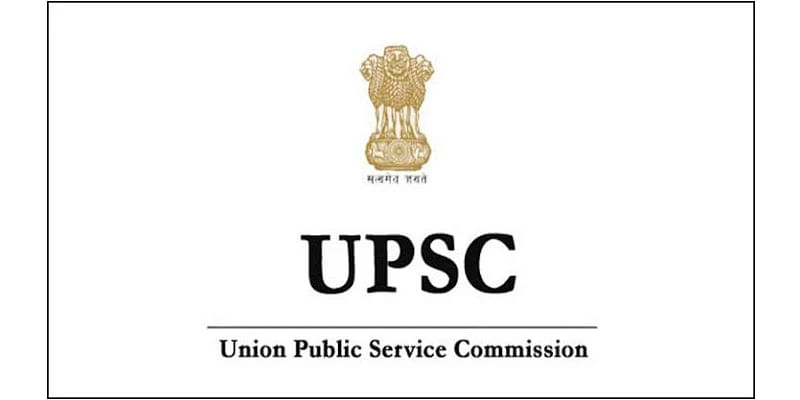The difference between AFCAT and CDS exams can be caliberated through syllabus, level of difficulty, and best reference books. The students can choose the best exam to clear to pursue their higher education.
Table of Contents
The students have various queries when it comes to the syllabus, eligibility, and pattern to understand the difference between AFCAT and CDS. AFCAT is opted for by candidates who want to pursue a future in the Air Force. It stands for the Air Force Common Admission Test. In contrast, CDS/CDSE is opted for by candidates who want to seek a career in the defense sector, and it stands for Combined Defense Service Examination.
Moreover, both are written exams, which are generally followed by Services Selection Board (SSB) rounds. Hence, the candidates with proper eligibility factors are only selected. Although there are many differences between CDS and AFCAT 2025, the conducting bodies for both examinations are different. However, it is highly recommended to follow the eligibility criteria for both the exams and then apply.
Difference Between AFCAT and CDS
The candidates appearing in both AFCAT and CDS need to graduate in any discipline. Moreover, AFCAT is opted for by candidates who want to apply only for the Air Force, while CDS opens its arms for three fields: Army, Navy, and Air Force. Let us now see what the basic differences between AFCAT and CDS are:
| Particulars | AFCAT | CDS |
| Conducting Body | The Indian Air Force conducts AFCAT. | While CDS is conducted by UPSC (Union Public Service Commission) |
| Frequency of the Exam | AFCAT is conducted twice every year. | CDS is conducted for two sessions every year. |
| Age Limit | The age limit for applying for AFCAT is as follows. Flying Staff - 19-23 years | The age criteria for CDS are as follows: Indian Military Academy - minimum 19–24 years (maximum) |
| Technical Staff - 18 to 28 years. | Air Force Academy - minimum 19 to 24 years (maximum) | |
| Ground Duties - 19 to 26 years. | Naval Academy - minimum 19 to 24 years (maximum) | |
| Officers Training Academy - minimum 19 to 25 years (maximum) | ||
| Type of Force | AFCAT allows applicants to apply for the Air Force. | CDS admits to these three fields as Army, Navy, and Air Force. |
| Eligibility | The minimum qualification is to complete 10+2 boards with 60% marks in aggregate. | Indian Military Academy - Graduation from any recognized university. |
| Air Force Academy - Graduation from any recognized university (with physics and math at the 10+2 level) or B.E./B.Tech. | ||
| Naval Academy - Engineering degree from any recognized university. | ||
| Duration of Examination | 120 minutes | 2 hours. |
AFCAT vs CDS Syllabus
The syllabus for AFCAT is released by the Indian Air Force (IAF), while UPSC releases the syllabus for CDS. For cracking these examinations, good preparation for both is very much needed.
AFCAT Syllabus
The syllabus for AFCAT is as follows.
| Sections | Topics |
| General Knowledge/ Awareness |
|
| English |
|
| Numerical Ability |
|
| Aptitude and Reasoning |
|
AFCAT EKT Syllabus
Additionally, candidates applying for AFCAT have to appear for the Engineering Knowledge Test (EKT). This paper tests the basic knowledge of engineering studies. The syllabus is as follows:
Mechanical Engineering
The students can check the mechanical engineering subtopics from the pointers mentioned below.
| Sections | Topics |
| Fundamental Engineering |
|
| Allied Engineering |
|
| Specialized Topics |
|
Electrical and Electronics Engineering
The students can check the electrical and electronics engineering subtopics from the pointers mentioned below.
| Sections | Topics |
| Fundamental Engineering |
|
| Allied Engineering |
|
| Specialized Topics |
|
Computer Science Engineering
The students can check the computer science engineering subtopics from the pointers mentioned below.
| Sections | Topics |
| Fundamental Engineering |
|
| Allied Engineering |
|
| Specialized Topics |
|
CDS Syllabus
The syllabus for CDS is as follows:
| Sections | Topics |
| General Knowledge/Awareness |
|
| English |
|
| Numerical Ability |
|
AFCAT vs CDS: Level of Difficulty
The difficulty level for AFCAT and CDS varies from each other. The syllabus is also slightly different, as the conducting authorities are different. Furthermore, the analyses of CDS and AFCAT are as follows:
| Exams | CDS | AFCAT |
| Mathematics | The level of questions is expected to be slightly tougher than AFCAT. Questions range from class X level to higher. | Questions are mostly based on class X and XII standards. The questions are comparatively easier. |
| English | The questions are basic and are blended. The level is estimated from simple to moderate. | The basic fill-in-the-blanks, error detection, and comprehension part is easy. The rest of the questions are expected from all over the grammar section. |
| General Awareness | Questions from various subjects are asked, and a thorough knowledge of each subject is needed. The level of questions is moderate to difficult. | Most of the questions are expected from current affairs. The difficulty level is moderate. |
Best Books for AFCAT and CDS
Here are the lists of books that are recommended for the AFCAT and CDS preparation. These are available on the market quite easily. Moreover, following these books can yield higher success.
| AFCAT | CDS |
| AFCAT Admission by Priyanka Prakashan | Mathematics for CDS by S. Chand |
| Flying & Technical Branch by Arihant Publications or by NK Natarajan | Quick General Knowledge by Disha Publications |
| Flying & Technical, Ground Duty Branch (combined) by Arihant Publications | Quantitative Aptitude by RS Agarwal or Kiran Prakashan |
| Quantitative Aptitude by RS Agarwal | Quicker Maths by M.Tyra |
| Verbal Ability and Non-Verbal Reasoning by RS Agarwal | Analytical Reasoning by A.K. Pandey |
| Objective English For Competitive Examination by Hari Mohan Prasad & Uma Rani Sinha | |
| Objective English by S.P Bakshi | |
| Quick Learning Objective English by Vikas & R.S. Aggarwal |
Also Check: AFCAT Physical Eligibility for Female














POST YOUR COMMENT